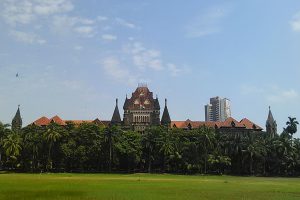Bombay High Court: B.P. Dharmadhikari, J. allowed a criminal appeal and acquitted the appellant who was convicted and sentenced by the trial court for commission of an offence punishable under Section 12 (punishment for abetment of offences) of the Prevention of Corruption Act, 1988.
The appellant was charged with aiding the main accused, an Assistant Sub-Inspector, in accepting a bribe from the complainant and thereby committing an offence under Section 12. The main accused died during the pendency of the trial and therefore the case against him abated. The appellant, however, was convicted by the trial court.
A.H. Jamal, Advocate, representing the appellant contended that any offence under Section 7 or Section 13 itself having not been established, there was no question of offence of abetment under Section 12. Per contra, N.R. Patil, Assistant Government Pleader, appearing for the State supported the trial court’s Judgment.
Relying on the decision of the Supreme Court in Sadashiv Mahadeo Yavaluje v. State of Maharashtra, (1990) 1 SCC 299 and CBI v. V.C. Shukla, (1988) 3 SCC 410, the High Court noted: “It was never the case of the prosecution that the appellant instigated complainant to pay bribe or then engaged himself and conspired to facilitate receipt of bribe. In fact, there is no charge of conspiracy at all. The only remaining part, therefore, is of aiding and, the provisions of Clause (iii) of Section 107 IPC (which defines abetment) show that aiding has to be with intention.” In Court’s view, the facts necessary to demonstrate that the appellant was dwelling under such intention were not brought on record. Prosecution only established the payment of Rs 1500 by the complainant to the appellant. However, its nature as a bribe could not be established. Therefore, it was held that the appellant’s conviction under Section 12 was unsustainable. the appeal was allowed and the appellant was acquitted. [Abdul Mannan Mohd. Yusuf v. State of Maharashtra, 2019 SCC OnLine Bom 824, decided on 16-05-2019]

